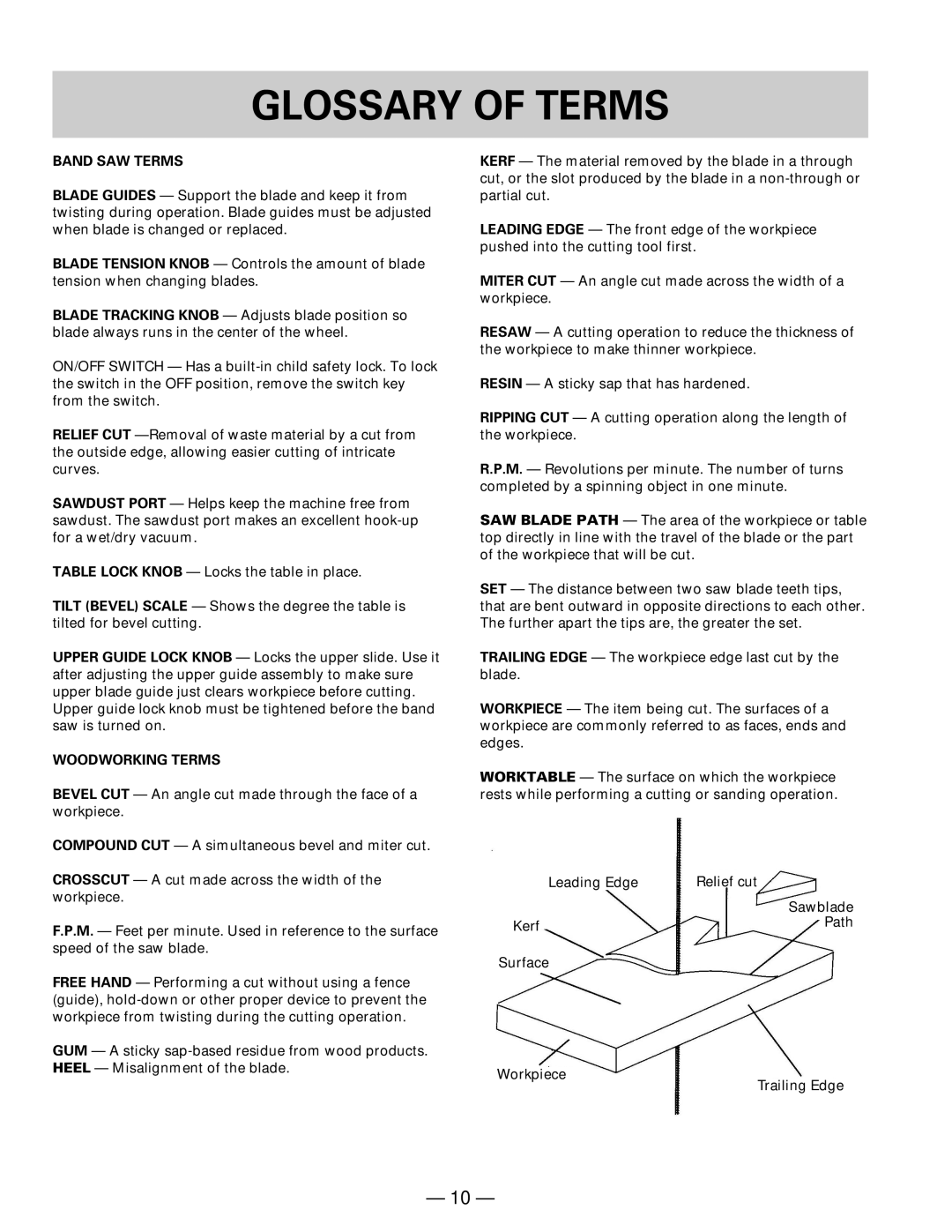
GLOSSARY OF TERMS
BAND SAW TERMS
BLADE GUIDES — Support the blade and keep it from twisting during operation. Blade guides must be adjusted when blade is changed or replaced.
BLADE TENSION KNOB — Controls the amount of blade tension when changing blades.
BLADE TRACKING KNOB — Adjusts blade position so blade always runs in the center of the wheel.
ON/OFF SWITCH — Has a
RELIEF CUT
SAWDUST PORT — Helps keep the machine free from sawdust. The sawdust port makes an excellent
TABLE LOCK KNOB — Locks the table in place.
TILT (BEVEL) SCALE — Shows the degree the table is tilted for bevel cutting.
UPPER GUIDE LOCK KNOB — Locks the upper slide. Use it after adjusting the upper guide assembly to make sure upper blade guide just clears workpiece before cutting. Upper guide lock knob must be tightened before the band saw is turned on.
WOODWORKING TERMS
BEVEL CUT — An angle cut made through the face of a workpiece.
COMPOUND CUT — A simultaneous bevel and miter cut.
CROSSCUT — A cut made across the width of the workpiece.
F.P.M. — Feet per minute. Used in reference to the surface speed of the saw blade.
FREE HAND — Performing a cut without using a fence (guide),
GUM — A sticky
KERF — The material removed by the blade in a through cut, or the slot produced by the blade in a
LEADING EDGE — The front edge of the workpiece pushed into the cutting tool first.
MITER CUT — An angle cut made across the width of a workpiece.
RESAW — A cutting operation to reduce the thickness of the workpiece to make thinner workpiece.
RESIN — A sticky sap that has hardened.
RIPPING CUT — A cutting operation along the length of the workpiece.
R.P.M. — Revolutions per minute. The number of turns completed by a spinning object in one minute.
SAW BLADE PATH — The area of the workpiece or table top directly in line with the travel of the blade or the part of the workpiece that will be cut.
SET — The distance between two saw blade teeth tips, that are bent outward in opposite directions to each other. The further apart the tips are, the greater the set.
TRAILING EDGE — The workpiece edge last cut by the blade.
WORKPIECE — The item being cut. The surfaces of a workpiece are commonly referred to as faces, ends and edges.
WORKTABLE — The surface on which the workpiece rests while performing a cutting or sanding operation.
Leading Edge | Relief cut |
| Sawblade |
Kerf | Path |
| |
Surface |
|
Workpiece
Trailing Edge
— 10 —
